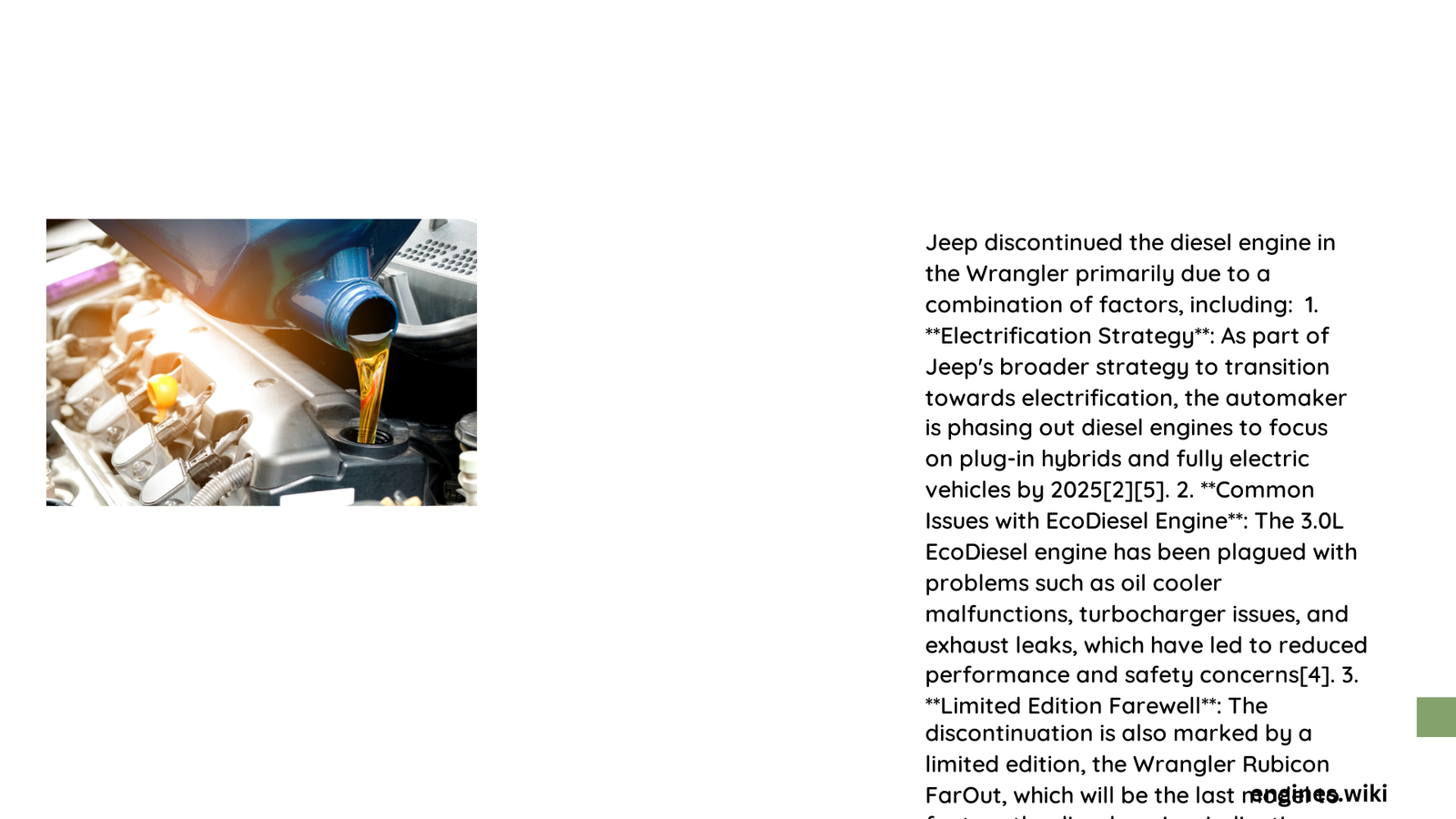Jeep’s diesel engine discontinuation stems from a complex interplay of market dynamics, regulatory pressures, and technological challenges. The EcoDiesel engine faced significant hurdles including declining sales, stringent emissions standards, consumer preference shifts towards electric vehicles, and persistent reliability concerns that ultimately led to its phase-out across Jeep’s product lineup.
What Drove Jeep to Abandon Diesel Technology?
Why Did Sales Plummet for Jeep Diesel Engines?
Jeep’s diesel engine sales experienced a dramatic decline over recent years, driven by multiple interconnected factors:
| Factor | Impact |
|---|---|
| Market Trends | Significant reduction in diesel vehicle demand |
| Consumer Preferences | Shift towards electric and hybrid alternatives |
| Regulatory Pressure | Increasingly strict emissions standards |
Economic and Market Challenges
The automotive landscape has transformed rapidly, with key challenges including:
- Emissions Regulations: Stricter environmental guidelines made diesel engine compliance extremely costly
- Consumer Perception: Growing environmental consciousness among buyers
- Technological Alternatives: Rise of electric and hybrid vehicle technologies
What Technical Issues Plagued Jeep’s Diesel Engines?
The 3.0L EcoDiesel engine suffered from several critical technical problems:
- Reliability Concerns
- Frequent engine malfunctions
- Electrical system complications
-
Transmission and drivetrain issues
-
Performance Limitations
- Suboptimal horsepower ratings
- Turbocharger lag
- Reduced throttle responsiveness
How Did Emissions Scandals Impact Diesel Engine Production?
Stellantis (Jeep’s parent company) faced significant legal challenges:
- A federal judge ordered a $300 million penalty for alleged emissions device manipulation
- Increased regulatory scrutiny
- Substantial compliance costs
- Reputational damage in the automotive market
What Consumer Trends Influenced the Diesel Engine Discontinuation?
Key consumer behavior shifts included:
- Preference for environmentally friendly vehicles
- Growing interest in electric and hybrid technologies
- Younger demographics prioritizing sustainability
- Improved electric vehicle infrastructure
What Were the Final Factors in Diesel Engine Elimination?
The decision to discontinue diesel engines resulted from:
- Declining sales volumes
- High compliance and development costs
- Emerging electric vehicle technologies
- Complex emissions control requirements
Technical Breakdown of Diesel Engine Challenges

The CP4 high-pressure fuel pump exemplified the technical complexities:
– Designed for European diesel specifications
– Poor performance with US-grade diesel fuel
– Prone to premature failure
– Increased maintenance costs
Market Transformation Insights
Jeep’s strategic pivot reflects broader automotive industry trends:
– Accelerated electrification
– Reduced diesel engine investments
– Focus on sustainable transportation solutions
Conclusion
Jeep’s diesel engine discontinuation represents a calculated response to complex market, technological, and regulatory challenges. The decision underscores the automotive industry’s rapid transformation towards more sustainable and technologically advanced propulsion systems.
